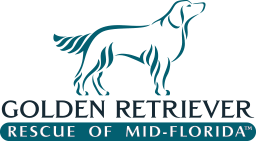Essential tips for success with your dog
Housetraining can be challenging, but there are several strategies to make it easier and more manageable for both you and your dog. Here are some tips to help streamline the process.
Consistency is Key
-
Establish a Routine
- Feed your dog at the same times every day to regulate their elimination schedule. Take them out first thing in the morning, after meals, and before bed.
-
Use a Specific Command
- Use a consistent potty command such as “go potty” or “do your business” so your dog understands what you want them to do.
Designate a Potty Area
-
Choose a Specific Spot
- Always take your dog to the same spot in your yard or outside your home to eliminate. The familiar scent will encourage them to go.
Supervise and Confine
-
Watch Closely
- Keep an eye on your dog indoors, especially if they are not yet reliable. Use baby gates or a crate to confine them to an area where you can keep an eye on them.
-
Crate Training
- Use a crate to help with housetraining. Dogs are less likely to soil their sleeping area, so a crate can help teach them to hold it until they are outside.
Positive Reinforcement
-
Reward Good Behavior
-
Keep Treats Handy
- Have treats ready near the potty area, so you can quickly reward your dog.
Recognize Signs
-
Watch for Signals
- Learn to recognize the signs that your dog needs to go outside, such as sniffing, circling, whining, or heading towards the door. Take them out right away when you see these signs.
Clean Accidents Thoroughly
-
Use Enzymatic Cleaners
- Clean up accidents indoors with an enzymatic cleaner to remove the scent and discourage your dog from using the same spot again.
Be Patient and Consistent
-
Stay Positive
- Avoid punishing your dog for accidents. Instead, focus on rewarding them for going in the right place. Patience and consistency are key to success.
Troubleshooting
-
Address Medical Issues
- If your dog is having persistent accidents, consult your veterinarian to rule out any medical issues such as urinary tract infections or gastrointestinal problems.
-
Manage Stress and Anxiety
- Changes in your dog’s environment can cause stress and anxiety, leading to accidents. Provide a calm and stable environment.
-
Seek Professional Help
- If you’re struggling with housetraining, consider seeking help from a professional dog trainer or behaviorist.
By following these tips, you can make the housetraining process smoother and more successful for both you and your dog. Good luck, and remember to stay positive and patient! 🐶🚀
For more information, read this article Housetraining the Adult or Adopted Dog | Carol’s Canine Training.

